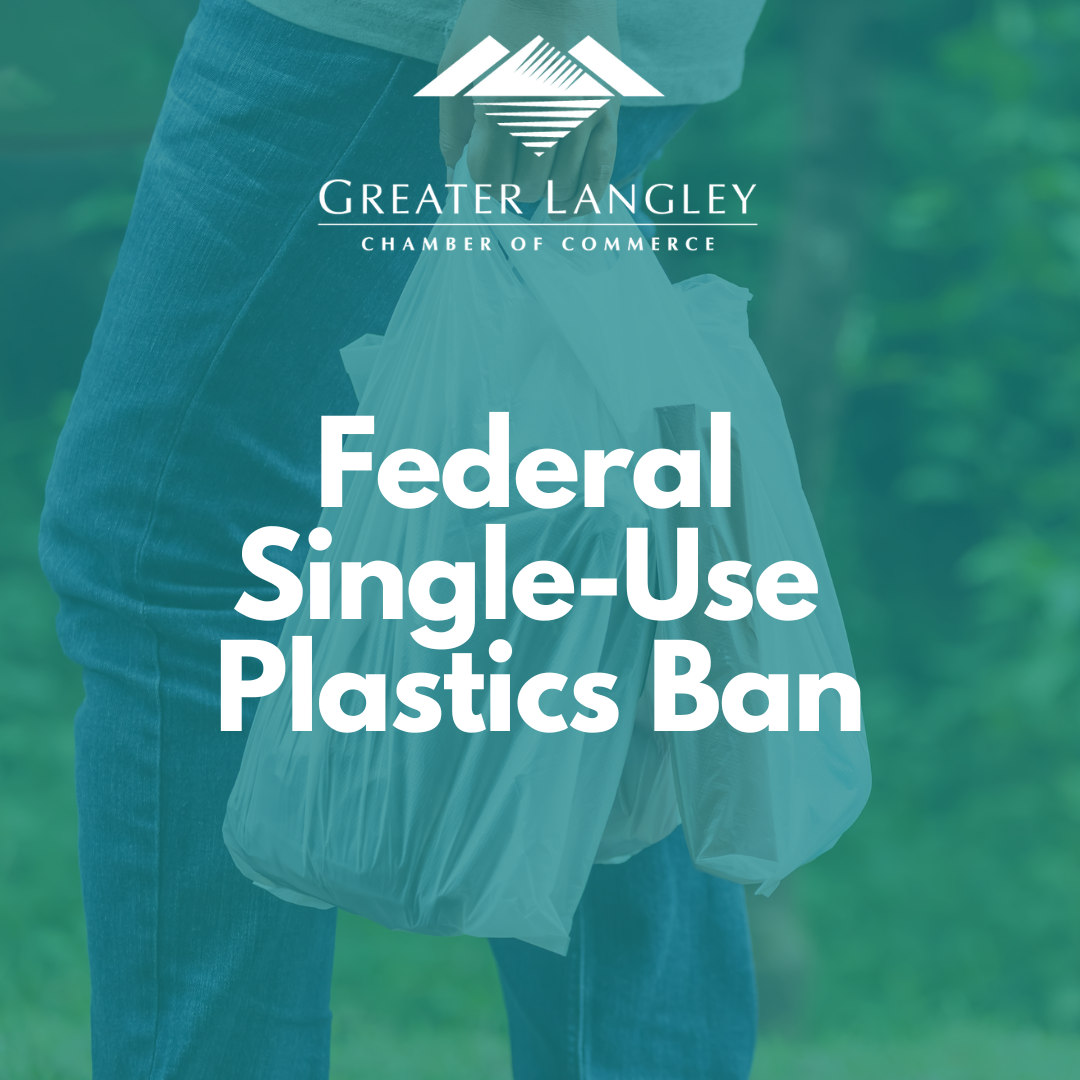Single Use Plastics Ban
Single Use Plastics Ban

The federal government has announced a timeline for a ban on the manufacture, sale and use of several single use plastic items. If you have a retail or food service business, these restrictions will impact you.
What’s being banned?
The items which will be prohibited from being sold in Canada include:
- Plastic checkout bags, not including produce bags or bulk-item bags, dry-cleaning bags, or bags to hold garbage or recycling
- Plastic cutlery including knifes, forks, spoons, sporks, and chopsticks
- 6-pack ring carriers around canned beverages
- Plastic stir sticks and plastic to-go stoppers to stop spilling
- Take-out and food containers for serving or transporting food or beverages, including clamshells, plates, bowls, cups (but not plastic lids on to-go cups)
- Straws (with some exceptions)
When does this take effect?
Manufacturing and importing of these items will be prohibited in December 20, 2022.
Businesses can then continue to use their existing stock and transition to alternatives over the coming year, until December 20, 2023 when the sale of these items will be prohibited.
What are alternatives?
Businesses should being researching and implementing non-plastic alternatives now to get ahead of this ban:
- For plastic checkout bags, this would mean encouraging customers to use their own bags/boxes, or offering reusable or paper bags upon request. At this time, the Township and City do not have bylaws requiring a fee be charged for these items, but this is the model that will likely be adopted in the future.
- For cutlery, businesses should seek those made of alternative materials (ex: fiber, bamboo, wood), or explore offering reusable metal cutlery if you have or can source appropriate washing.
- For straws, consider eliminating them altogether, or using paper-based products when required.
- For food and take-out containers, businesses can explore alternatives such as cardboard or those made out of fiber. Containers which are made from non-prohibited kinds of recyclable plastics, like polyethylene terephthalate (PET), high density poly ethylene (HDPE) or polypropylene (PP) can still be used, as can those made from compostable plastics such as polylactic acid (PLA). It is best to consult your supplier to ensure compliance. If you have the ability, offering reusable take-out containers could be an option but this would require a deposit, return and cleaning scheme.
- For 6-pack rings, a common alternative already used by many local breweries are rigid plastic snap-on can holders. Other alternatives would be those made from fibre or paperboard, such as the E6PRTM (Eco Six Pack Ring or the CanCollar®
- For stir sticks, consider finding ways of providing drinks pre-mixed and remove the need for a stir stick altogether. For where that is not possible, look for wood, sugarcane or fibre-based options.
What’s different about straws?
Flexible straws are a vital tool for accessibility and will continue to be allowed after 2023.
- Manufacture and import will remain allowed
- Care institutions can provide straws to patients and residents
- Retail stores can sell straws in packages of 20 or more on the following conditions provided they are not on public display and are requested by the customer
- Businesses can sell straws to other businesses
Have questions or concerns on this ban? Contact the Langley Chamber and speak with us!
